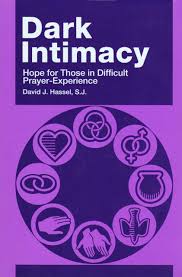Our Choice: Dopamine or Jesus?
(Gal 1:13-34; Ps 139; Lk 10:38-42)
**************************************
“There is nothing we humans crave more, fear more, and fumble more than intimacy.”
This statement by David Hassell S.J., author of Dark Intimacy, provides the context for today’s readings. As human beings, we all have a double yearning: for intimacy, and for euphoria (“feeling good”). Today’s liturgy invites us to achieve intimacy with Jesus, the only one who can fulfill the deepest yearnings of our heart.

Simon Sinek of Youtube fame after a talk on millenniums in the workplace went viral, claims failed parenting has placed a generation of youth into a dilemma – wanting the world without knowing how to obtain that goal.
A generation of youth have been told they were special, they could have anything they want because they want it, they could have it without having to wait for it, they will be promoted without earning it, and they will have an impact on the world. The result is a generation of self-centered youth, expecting instant gratification, unable to wait for things like relationships to grow and mature, thrown into an uncaring corporate world and depending on technology and social media to try to fill the resultant void.
What they discover is every click of a cursor, sound of a text message, “Like” sign on a screen, stirs up the drug dopamine in the brain giving us a “high” feeling, a taste of euphoria just like alcohol or street drugs do. That pattern starts to take over our personalities, and we become addicted to these processes. What Workaholics Anonymous taught me was process addictions are also chemical addictions precisely for that reason – the activity creates the chemical providing the addictive rush or euphoria.
The solution is found in today’s readings. Paul, in the first reading to the Galatians, recounts how “God … was pleased to reveal himself to me.” Relationships are built on real-time, inter-personal communication. Friendships, marriages and even business partnerships grow when we share out thoughts, emotions and ideas with each other.
St. Paul’s relationship with Jesus began with a question: “Saul, Saul, why are you persecuting me?” (Acts 9:4). That encounter changed everything for Saul. He had been a zealous persecutor of “God’s church” as he put it. His “high” was arresting followers of “the Way.” Now he was shocked into realizing he was on the wrong side of God’s plan. He needed time to recover from this shock, this turning upside down of his whole belief system, his whole life. He needed time to grow into a new intimate relationship with this Jesus of Nazareth who was now both the longed-for Messiah of Judaism and the Risen Lord or Kyrios of this new Way.
So instead of “consulting flesh and blood,” Paul instinctively and voluntarily set out into “liminal space” as anthropologists call it – a dark period of isolation, transition and transformation. There was much for Paul to digest and integrate. According to the movie Paul – Apostle of Christ, the other disciples had three years with the Lord – now he needed the same for himself. According to The Word Among Us, Paul spent those three years re-reading the Hebrew Scriptures he knew so well, but now through the prism of the resurrection, and came to realize they were all about Jesus of Nazareth.
I personally believe Paul also needed time to soak up how loved he was by Jesus because he was forgiven so much – after all, he was a persecutor of the believers and even a murderer. The movie portrays this as flashbacks Paul experienced of those whose deaths he had approved, beginning with St. Stephen. This reality adds meaning to the gospel scene in which Jesus says of the repentant woman who washed his feet with her tears and dried them with her hair, “She must have been forgiven much to be showing so much love.” Now it would be the same with St. Paul – he would show his love proclaiming Jesus to the whole world even at the cost of his life
God also wants to build an intimate relationship with us, one that will take away any need for a false high from any dopamine. Hassel in his book Dark Intimacy describes our whole life of prayer and of the sacraments as one life-long journey of intimacy with God, beginning in our mother’s womb and continuing throughout all the events, pleasant and unpleasant, of our lives.
The psalm connects with his thoughts, reminding us of our intimate beginnings as God “formed our inward parts, knit us together in our mother’s womb, fearfully and wonderfully made us, beheld our unformed substance and intricately wove us in the depths of the earth.” Nothing could be more intimate than that. God knows us through and through, and yearns to have an intimate relationship with us.
That is why Jesus appeared to Paul, and wants to reveal himself to us more and more every day, in an ever-deepening intimate relationship with him that alone will satisfy that deep, inner yearning. A key to developing that intimate relationship with Jesus is found in the gospel story of Martha and Mary. In this incident, Martha could represent the addictive personality seeking fulfillment and meaning in busyness, effort and activity. Mary, on the other hand, sets that aside to sit in the posture of a disciple and listen to Jesus.
Thomas Keating has a wonderful insight into the dynamics at play here. He is convinced Mary is not so much listening to what Jesus is saying – she is more aware she is in the presence of the Word. Jesus, the Word made flesh, is right there in front of her, and she is just soaking up his love, being in his presence, like a child falling asleep on her father, or John leaning his head against Jesus chest at the Last Supper, listening to his heartbeat and wordlessly absorbing his love.
I am convinced that as we can do the same, more and more become aware of the depth of God’s love for us in Jesus, and soak up that love in contemplative prayer especially, we will feel less and less need to compulsively look for any dopamine-induced, elusive and false “high” or euphoria in the false gods of money, fame and power. God wants to reveal his Son Jesus to us also in a way that is unique to us. Whether we have been close to him for years, or only came to know him yesterday, Jesus wants to deepen the bond between us and him.
God knows the best way to reveal his Son to us, just as he did for Paul. So, whether it is pondering his Word, spending time in contemplative prayer, paying more attention to our emotions and the gentle movement of the Holy Spirit within us, or just having more heart-to-heart conversations with Jesus as we go through our daily activities, let us be attentive to the greater intimacy Jesus is yearning to have with us.

St John of God Retreat Centre, AUS
The Eucharist is one of the most intimate sacraments of all – we express our sorrow at falling short of the relationship God wants to have with us, we listen to the word of God, and above all, we commune with the very body and blood of Jesus.
May our celebration today deepen our intimate relationship with Jesus and liberate us from any need to yearn for the false god of dopamine in our lives.




The first thing on my mind is Jesus Christ and believing in God. No matter what I do each day I only praise and worship this one true God that gave us this gift which is his son Jesus Christ. Jesus’ teachings shows us how to live our lives with love, joy and peace . There is no hatred, bitterness, power , fame and seeking revenge all the time. He will teach us how to forgive people for their sins and make amends with them. He will show us to confess our sins and he will be the one blessing us and healing our inner soul. This is believing and following the one the God ; who is the Father, the son and the Holy Spirit. He will not abandon us and leave us not attending our needs. Jesus is always with us when we call for him and asking him in our prayers. Amen . Praise to you Lord Jesus Christ.
Well thanks Bishop Sylvain for the outstanding homily and teachings about building an intimate relationship with Jesus Christ than yearning false Gods. Amen .